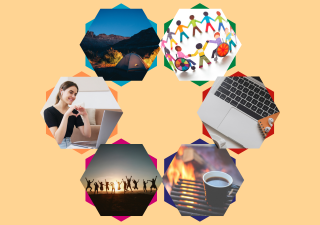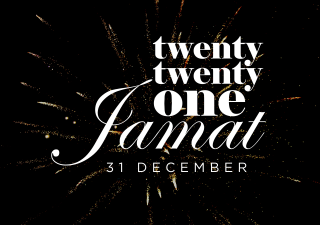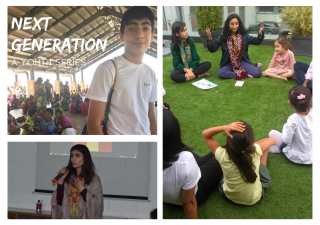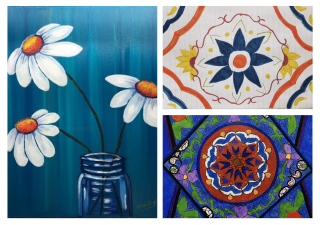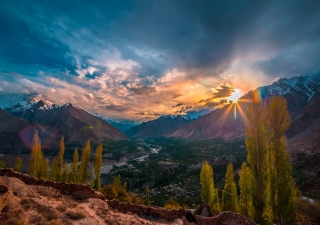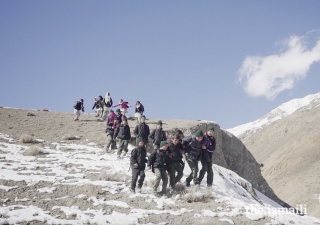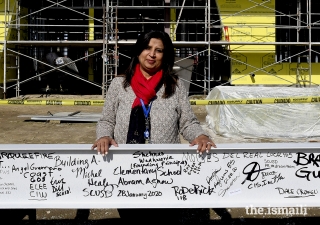Community News
The phrase, Log kya kahenge meaning ‘what will people say,’ highlights a mindset within South Asian communities about the way people act, hold expectations, or even choose to participate in programs. This mindset has also been a contributing roadblock for many people when talking about and seeking out mental health support.
Sensitive to the needs of our young Jamat in a time of uncertainty, and in the absence of regular in-person camp offerings, the virtual Mosaic camp was an example of innovation and dedication from a small group of volunteers in the UK, looking to inspire and educate leaders of the future.
Welcome to The Ismaili Magazine 2020: A Year of Extraordinary Service. This digital magazine provides a whistle-stop tour across continents, highlighting the various programmes, initiatives, and events organised by AKDN and Jamati institutions around the world over the past 12 months.
Since Navroz this year, every special occasion in 2020 has been celebrated quite differently to what we are used to — and this New Year’s Eve will be no different. With many stuck at home and large gatherings prohibited around the world, The Ismaili TV is pleased to provide the opportunity to celebrate the start of 2021 as One Jamat — in your very own home.
Many of us spend our weekends having much needed downtime, catching up with chores or spending time with family. How willing would you be to give that up? Yasmin Heath from Brighton Jamatkhana in the UK did just this when she served on a TKN assignment in Europe. For one weekend every month, for six months, Yasmin travelled to Germany to voluntarily help murids from Afghanistan learn English language skills.
Whether you define it as seva, khidmat, or serviço, the ethic of offering service has been at the foundation of many selfless institutions and individuals around the world. This ethic is seen within our community and beyond, which can help to foster an active and healthy civil society. Youth leaders from around the world have adapted this very mindset: enabling communities through ‘building bridges.’ This phrase of Mawlana Hazar Imam’s is vital to forming a knowledge society, in which best practices — such as the ones used by Shagufta, Aly, and Sara — are shared and implemented worldwide.
This summer, an Aga Khan Education Board collaboration unveiled Bridges, a six-week programme focused on learning and improving communication skills, while connecting students between the ages of 13-17, from across the globe.
As the Jamat around the world looks forward to commemorating the 84th birthday of our beloved Mawlana Hazar Imam, The Ismaili is pleased to present a two-day Salgirah programme on The Ismaili TV. Featuring a variety of content — from an inspiring theatre production to a special birthday party organised by children — we hope to entertain and inspire the Jamat on this joyous and special occasion.
The Ismaili Council for Pakistan's Socio-Economic Development Programme supports access to quality education, so that children like Sadaqat can achieve their dreams and empower their families.
Sadaqat aspires to become a writer. Although he suffers from a childhood impairment and the distance from his village to school is two kilometres, he does not allow his condition or the stretch of road to hinder him on the path to achieving his dream.
"I spend a lot of time learning about my faith and trying to be an exemplary ambassador of Islam in the world,” said Aziz Nathoo, who has immersed himself in teaching, dialogue, peacemaking, tolerance, and promoting pluralism for the past 20 years.
“Education is an equalizer. All of us who are in education, we’re not in there for money. We’re there for impact,” said Shehnaz Wadhwania, currently the founding principal for Abram Agnew Elementary School in California’s Santa Clara Unified School District. Before becoming a school leader, Shehnaz followed a unique career path in education, where she felt she could make the greatest impact.


